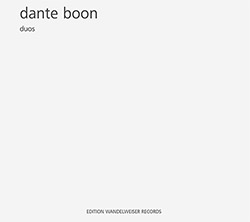
A collection of works from pianist & composer Dante Boon in diverse duos and virtual duo compositions that reflect on John Cage's "inner clock" concept from "Two2", each of Boon's compositions directing the players through systems of notation and counting unique to each player, varying the rules of how the two players eventually synchronize their performances.
In Stock
Quantity in Basket: None
Log In to use our Wish List
Shipping Weight: 3.00 units
Sample The Album:
Antoine Beuger-whistling
Dante Boon-toy piano, objects, voice, piano
Sasha Elina-voice
Rene Holtkamp-guitar
Marianne Schuppe-voice, piano
Sytske Van Der Ster-objects
Click an artist name above to see in-stock items for that artist.
UPC: 4011778039723
Label: Edition Wandelweiser Records
Catalog ID: EWR 2304
Squidco Product Code: 34527
Format: CD
Condition: New
Released: 2023
Country: Germany
Packaging: Cardboard Gatefold 3 Panels
Recorded at various home studios in 2021 and 2022.
"The pieces on this disc all feature expanded notions of counting and togetherness. Players can be "in the same time" even when not being measurably synchronized.
"A manner of counting together: this could be one definition of meter. Counting together so as to be "in the same time". Even when making music solo, you'll be together in this sense, if only with some projected listener, or with yourself.
Meter is not just measuring time, as it was in a lot of advanced music from the past century that featured complex time signatures or polymetrical techniques. Complementary to this, meter is also variable intensity and plasticity of time. Getting a tango, a waltz or a mazurka right - how a downbeat is different from an upbeat, how each meter will have its own little lilt, its inner shifts that make counting together live.
The most fundamental platform for meter is the duo. In a duo, counting time really is a relation to one literal other. A minimal codependency. Two people providing one another with the space to shape temporal intensities.
In the pieces of this disc, Dante Boon shows himself to be a deep thinker about meter among composers working today, as part of the tradition of John Cage - specifically of Two2, a duo for pianists in which Cage was influenced by Sofia Gubaidulina's remark that "there is an inner clock". In that piece, two pianists play chords freely but still depend on each other's decisions for the timing of every unit, instead of depending on a stopwatch as in most of Cage's Number Pieces. To that tradition of free interdependence, Dante adds a sensibility from more traditional music, of embodied counting and stress, nuanced patterned intensities, meter as life form.
The pieces on this disc all feature expanded notions of counting and togetherness. Players can be "in the same time" even when not being measurably synchronized. Rather, the same time is an emergent composite of two individual, non-identical, but interrelated counting processes. You could say, an unmeasurable synchronization.
Remarkably, many of these duos are notated on a single staff. One notation, interpreted differently by each of the two players. In "Lied (je slaapt)" for instance, two players play the same measures, but counting them differently: for every measure, the (toy) pianist choosing to use four, six or eight counts per note, and the clarinetist choosing five, seven or nine. The result is a togetherness that can never synchronize strictly. Instead, bar by bar, spontaneous tempo canons result. This openness of time even bleeds into the form itself - the piece has five sections like a rondo, with the two instruments starting every measure together in the odd sections. In the second section, however, the pianist enters later, in the fourth one, the clarinetist enters later. But the score does not indicate where the next section will begin; that, too, is up to spontaneous player decisions. The result is a freely shifting mosaic of varied togethernesses.
In "Duo: Table & Books" performers similarly decide section boundaries. For example, the first part of the piece begins with two sounds from performer I always alternating with one sound from performer II. Halfway through, however, performer II will decide to invert these roles by making a sound following the first sound of performer I - and then following with a second sound. From that moment, it will always be two sounds from performer II alternating with one from performer I. So there is a two-one "meter", but as the roles shift, the intensities are redistributed as a subtle variation in metrical personality. This is a "meter" for a specific situation - two people, sitting at a table, each reading their own book. At first they make sounds while reading that are "non-intentional in nature" as the score says, later they read single words from their books out loud, creating fleeting verbal encounters between two different inner worlds.
On this disc, "Ruht Nicht Aus" and "Duo (guitar)" are two mirroring commentaries on duo-ness. The guitar piece is a duo, but for a single player. Here, the main section actually is on two conventional staves linked by barlines. However, the guitarist is to play the top and the bottom voices freely, as if two interdependent players in the manner of "Two2". Other sections are interwoven into this, involving other forms of polyphony: dyads, or laisser vibrer tones overlapping with new attacks. The result is an ambiguous listening experience, generally sounding like a single compound melody but always also suggesting two underlying streams. Conversely, "Ruht Nicht Aus" for voice and instrument - here also performed by a single performer - notates the two voices only as dyads that are to be played strictly together - though of course, the beginning and ending of a note means something quite different for a voice or a piano. Yet the two need to negotiate what "together" means for such different sounds. In both these performances on this disc, a single interpreter splits themself up and must negotiate time with this inner other. Are we hearing one voice, two voices, or some spectral in-between?
"Alone" and "20/21" take the rethinking of togetherness the furthest, by playing with togetherness in various forms of full separation. In "Alone" for voice and piano, a poem by Nikki Giovanni is sung twice, with piano accompaniments. Both song and piano are notated on the same staff, but are performed separately in alternation, with maybe some overlap. Yet still, a "bar" unites them in togetherness: the staff on which both parts are written. In the second half, the order of piano and voice entries on a single staff switches around, creating new relations, while maintaining the same underlying "bars". The two remain separate ("lonely"), but separate together ("with you").
If "Duo: Table & Books" was a situation of reading together, "20/21" is a lockdown situation in the pandemic. Just as in Alone, the two parts are played separately - but then edited together to form a duo. Metrical togetherness is achieved in an ingenious way: the flute player will listen to the recording made by the pianist, but pause it halfway through, then record half of their part, then listen to the rest of the piano recording, and record their second half. Later, the recordings are edited to overlap. This way, the pianist's choices of tone, tempo, and metrical feel may influence the flutist's playing, occasioning a shared sense of counting and a togetherness while being completely separated in space and in time.
Two people, across their distances, counting together, interdependent, yet free, creating rich new time."-Samuel Vriezen
Artist Biographies
• Show Bio for Antoine Beuger "Antoine Beuger (b. 1955 in Oosterhout, Netherlands) studied composition with Ton de Leeuw at Sweelinck Coservatorium in Amsterdam 1973-78. In 1990 he began composing after an interruption of about 10 years. Two years later he founded Edition Wandelweiser together with composer/performer Burkhard Schlothauer. Since 1994 he's been active with the conception and organisation of KLANGRAUM, a concert series at Kunstraum Düsseldorf. During the years 1995-2001 he was working together with visual artist Mauser as artistic director of "Werkraum", Place for Interdisciplinary Artistic Events, Cologne. Since 1996 he's been artistic director of edition wandelweiser records and since 2004 managing director of Edition Wandelweiser gmbh." ^ Hide Bio for Antoine Beuger • Show Bio for Dante Boon "Dante Boon (1973) is a Dutch composer and pianist living in Amsterdam. At the age of 14, he started his piano studies at the Amsterdam Sweelinck Conservatorium. At the Royal Conservatoire in The Hague, he studied composition with Diderik Wagenaar. After having been the keyboard player and arranger for a major Dutch rock band for several years, he went back to the classical, especially contemporary piano repertoire. With Samuel Vriezen, he recorded Tom Johnson's Symmetries (piano four hands) for Karnatic Lab Records. Recordings for other labels include works by Rozalie Hirs (Attacca Records) and Philip Corner (New World Records). his first solo CD cage. frey. vriezen. feldman. ayres. johnson .manion was released 2010 on Edition Wandelweiser Records to international critical acclaim." ^ Hide Bio for Dante Boon • Show Bio for Sasha Elina "Sasha Elina (b. 1994, Moscow) is a curator and musician based in London. Her major curatorial showcases include concert programmes and events at the New Tretyakov Gallery (2015), the Stanislavsky Electrotheatre (2015-16), the parallel programme of the 6th Moscow Biennale of Contemporary Art (2016), Prince Golitsyn Family Estate (Pushkin Museum) (2016), Central Moscow Manege (2016), Muzeon Park of Arts (2018), ZIL Cultural Centre (2017-2019), amongst others. Sasha founded and directed the experimental music ensemble DianaPlaysPerception (2017-2021). In 2019, she curated and produced 'Contact Results in Contagion', a solo exhibition by Cameron Graham (UK) in the Solyanka Gallery (Moscow). Sasha worked as a flautist and vocalist with the Moscow Contemporary Music Ensemble (MCME), was a member of the Moscow Scratch Orchestra, as well as performing new and free improvised music in various small groups and ensembles internationally. She is currently a founding member of The Same Ensemble (a duo with the Russian composer Kirill Shirokov). Sasha is the founder and artistic director of the Music Space Architecture international project, dedicated to identifying and investigating different areas of interaction between music and architecture. Sasha was selected as a fellow of OneBeat 2019, a U.S. State Department Programme produced by Bang on a Can's Found Sound Nation. She is currently undertaking a Masters by Research at the University Of Huddersfield, U.K." ^ Hide Bio for Sasha Elina • Show Bio for Rene Holtkamp René Holtkamp is a guitarist known for his work with Mark Hannesso, Antoine Beuger, and Dante Boon. ^ Hide Bio for Rene Holtkamp • Show Bio for Marianne Schuppe "Marianne Schuppe is a singer, writer and composer working across music and language. She continually develops her work through improvisation, performance and writing. Her prime interest lies in the voice's ability to move between pure sound and words as well as in multilinguism. She studied visual arts and music in Hildesheim/Germany and extendeded her vocal studies in South India (Kalakshetra Academy), Switzerland (Jolanda Rodio) and Italy (Michiko Hirayama). She often works solo, but also collaborated with composers Caroline Wilkins, Roland Dahinden, Michael Maierhof, Hans-Jürg Meier, Antoine Beuger and with ensembles such as Klangforum Wien, Ensemble Phönix Basel and Basel Sinfonietta. As an improvisor she collaborated in various formations and plays presently with Alfred Zimmerlin in duo. In the context of visual arts and performance, partners were Dorothea Schürch, Andrea Wolfensberger, Renée Levi, Dias&Riedweg among others. She took part in radioplays, -features and -discussions and published several essays about here observations of voice and singing. As a soloist she recorded the vocal-cycles of Giacinto Scelsi (New Albion 2006), Three Voices by Morton Feldman (col legno 2007) and her own works (edition wandelweiser). Further recordings with ensembles were released with variuos labels. She teaches singing and improvisation at various institutions, worked as a voice- teacher in Germany, Switzerland and Japan and is a guest-lecturer at FHNW University of Music in Basel. This practical experience has led to the development of individual projects with people and voices and resulted in several commissioned works. She lives in Basel, where she curates a concert series as president of the IGNM Basel." ^ Hide Bio for Marianne Schuppe • Show Bio for Sytske Van Der Ster "Sytske van der Ster (born 2 March 1978) is a Dutch actress and singer, who is known for her roles in The Assistant, Life Song and Lord & Master. Van der Ster was born in Delft. In 2001 she graduated from the Kleinkunstacademie in Amsterdam. In 2002 she played the role of Mother Sproet in the feature film Pietje Bell, a role she repeated in 2003 in Pietje Bell 2: The Hunt on the Tsaren crown. She also played in theater productions such as Foxtrot, Miffy and the Efteling Fairy Fairy Tale Show and had guest roles in Rozengeur & Vodka Lime, Juliana and Boxks. In 2007 she made a guest contribution to the album Zwaluw 22 by Ton Snijders. From 2007 to 2010, Van der Ster was featured in the television series The AdŐs Assistant at Net5, as Marjolein van der Bijl. In 2009 and 2010, she starred in the musical Pipo as Mamaloe. In 2010, she played Agnes, Bente's mother, in the KRO-childer series VRijland and the role of the swamphes Gruwela in the film Foeksia de Miniheks. In 2011, she, in the role of Lieke, was featured in the drama series Levenslied. In 2014 she was also featured in the television detective series Heer & Meester as prosecutor Suze Geleijnse and in the 2014/2015 season she played the leading role in the musical Minoes. Van der Ster is married and has two sons." ^ Hide Bio for Sytske Van Der Ster
3/26/2025
Have a better biography or biography source? Please Contact Us so that we can update this biography.
3/26/2025
Have a better biography or biography source? Please Contact Us so that we can update this biography.
3/26/2025
Have a better biography or biography source? Please Contact Us so that we can update this biography.
Have a better biography or biography source? Please Contact Us so that we can update this biography.
3/26/2025
Have a better biography or biography source? Please Contact Us so that we can update this biography.
3/26/2025
Have a better biography or biography source? Please Contact Us so that we can update this biography.
Track Listing:
1. Ruht Nicht Aus (2015) 3:22
2. Lied (Je Slaapt) (2012) 15:19
3. Duo (Guitar) (2018) 14:29
4. Duo: Table & Books (2020) 12:30
5. 20/21 (2021) 9:13
6. Alone (2021) 7:52
Compositional Forms
Duo Recordings
Avant-Garde
Piano & Keyboards
Unusual Vocal Forms
John Cage
New in Compositional Music
Search for other titles on the label:
Edition Wandelweiser Records.


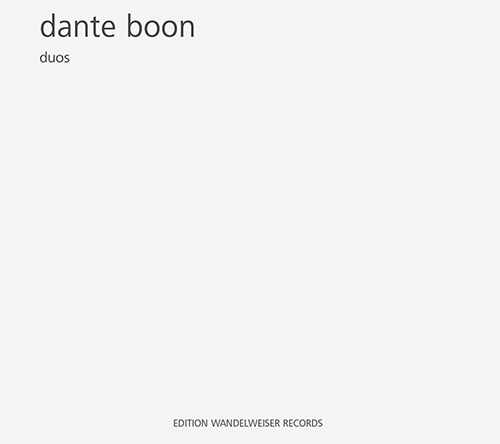


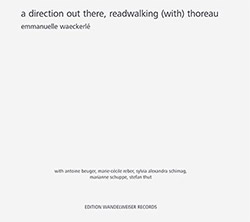




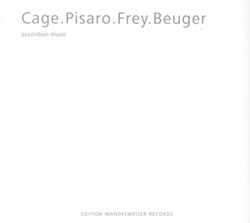




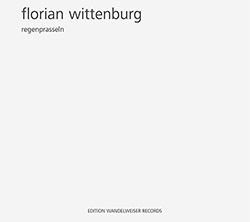
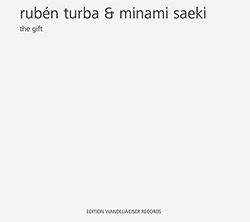
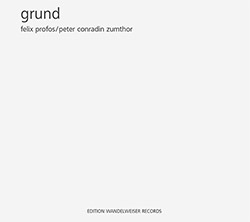
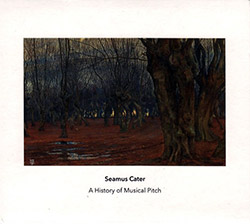
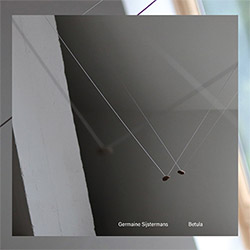
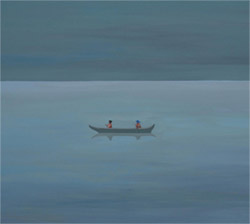
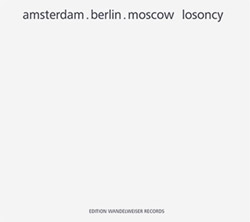






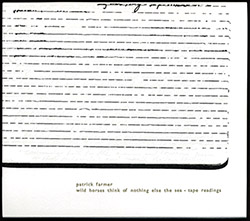






![Ackerley / Prymek / Turner: All Hope With Sleeping Minds [CASSETTE]](https://www.teuthida.com/productImages/misc4/35950.jpg)
![Myers, David Lee : Tin Drop Tear [BOOK w/ DOWNLOAD]](https://www.teuthida.com/productImages/misc4/36030.jpg)



![Schindler, Udo / Sandy Ewen / Damon Smith: Munich Sound Studies Vols. 4, 5 & 6 [3 CDs]](https://www.teuthida.com/productImages/misc4/35966.jpg)






![Turbulence Orchestra & Sub-Units: Smear Out the Difficulties (Double Live) [2 CDs]](https://www.teuthida.com/productImages/misc4/36048.jpg)
![Perelman, Ivo / Tyshawn Sorey: Paralell Aesthetics [2 CDs]](https://www.teuthida.com/productImages/misc4/35871.jpg)


![Sjostrom, Harri: SoundScapes #4 Festival Berlin 2023 [3 CDs]](https://www.teuthida.com/productImages/misc4/35874.jpg)

![Musicworks Magazine: #150 Winter 2024/25 [MAGAZINE + CD]](https://www.teuthida.com/productImages/misc4/36035.jpg)





![Glenn, Jordan: Flustered [CASSETTE]](https://www.teuthida.com/productImages/misc4/35948.jpg)


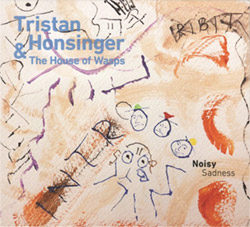
![Lindorff-Ellery, Evan: Church Recordings from Monhegan [CASSETTE]](https://www.teuthida.com/productImages/misc4/35949.jpg)
![Schindler, Udo / Werner Dafeldecker / Gunnar Geisse: Travelling Sound Images - Cognitive Transfers [Trio]](https://www.teuthida.com/productImages/misc4/35767.jpg)

![Egberth, Dennis: The Dennis Egberth Dynasty [VINYL]](https://www.teuthida.com/productImages/misc4/35549.jpg)


![Schindler, Udo / Rieko Okuda / Eric Zwang Eriksson: Disturbed Terrains [2 CDs]](https://www.teuthida.com/productImages/misc4/35330.jpg)
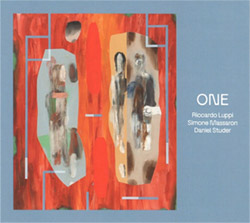
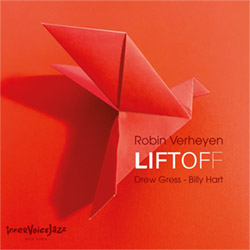
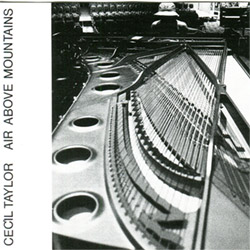


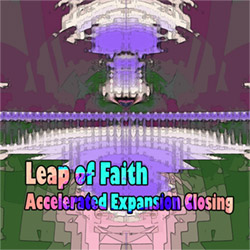
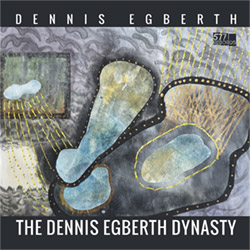
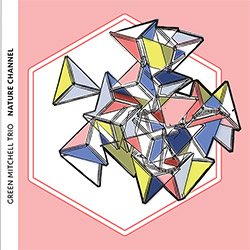

![Wolf Eyes / Anthony Braxton: Live At Pioneer Works, 26 October 2023 [VINYL]](https://www.teuthida.com/productImages/misc4/35839.jpg)




![Olencki, Weston : Pearls Ground Down To Powder [VINYL]](https://www.teuthida.com/productImages/misc4/35956.jpg)
![Myers, David Lee: Oculus [2CDs]](https://www.teuthida.com/productImages/misc4/35857.jpg)


![dustsceawung: dustsceawung [CASSETTE w/ Download]](https://www.teuthida.com/productImages/misc4/35753.jpg)




![Halls of the Machine: Atmospheres For Lovers And Sleepers [CASSETTE w/ DOWNLOAD]](https://www.teuthida.com/productImages/misc4/35806.jpg)



![AHC (Alexander Cooper): Lase [2 CDs]](https://www.teuthida.com/productImages/misc4/35754.jpg)



![Fagaschinski, Kai / Yan Jun : Graveyard Processions [VINYL w/ DOWNLOAD]](https://www.teuthida.com/productImages/misc4/35474.jpg)
![Brant, Cody / Carl Kruger: Smoke Detail [CASSETTE w/ DOWNLOAD]](https://www.teuthida.com/productImages/misc4/35551.jpg)







![Zorn, John / JACK Quartet: The Complete String Quartets [2 CDs]](https://www.teuthida.com/productImages/misc4/35609.jpg)

![Lonsdale, Eden: Dawnings [2 CDs]](https://www.teuthida.com/productImages/misc4/35480.jpg)







![Sanna, Claudio: Compositori Sardi Contemporanei II [2 CDs]](https://www.teuthida.com/productImages/misc4/35317.jpg)






![Zurria, Manuel: Fame di Vento [3 CDs]](https://www.teuthida.com/productImages/misc4/35167.jpg)

![Granberg, Magnus / Nattens Inbrott / Skogen: Holde Traume, Kehret Wieder! [2 CDs]](https://www.teuthida.com/productImages/misc4/35038.jpg)

![Electric Bird Noise / Derek Roddy: 8-10-22 [CD EP]](https://www.teuthida.com/productImages/misc4/35970.jpg)








![Elephant9 : Mythical River [VINYL]](https://www.teuthida.com/productImages/misc4/34624.jpg)



![Elephant9 with Terje Rypdal: Catching Fire [VINYL 2 LPs]](https://www.teuthida.com/productImages/misc4/35355.jpg)
![Deerlady (Obomsawin, Mali / Magdalena Abrego): Greatest Hits [VINYL]](https://www.teuthida.com/productImages/misc4/34876.jpg)







![Surplus 1980: Illusion of Consistency [CD]](https://www.teuthida.com/productImages/misc4/35069.jpg)
![Staiano, Moe: Away Towards the Light [VINYL + DOWNLOAD]](https://www.teuthida.com/productImages/misc4/35037.jpg)



![Caveira (Gomes / Sousa / Abras / Ferrandini): Ficar Vivo [VINYL]](https://www.teuthida.com/productImages/misc4/34643.jpg)
![Coley, Byron: Dating Tips for Touring Bands [VINYL]](https://www.teuthida.com/productImages/misc4/17906.jpg)

![Lost Kisses: My Life is Sad & Funny [DVD]](https://www.teuthida.com/productImages/misc4/lostKissesDVD.jpg)